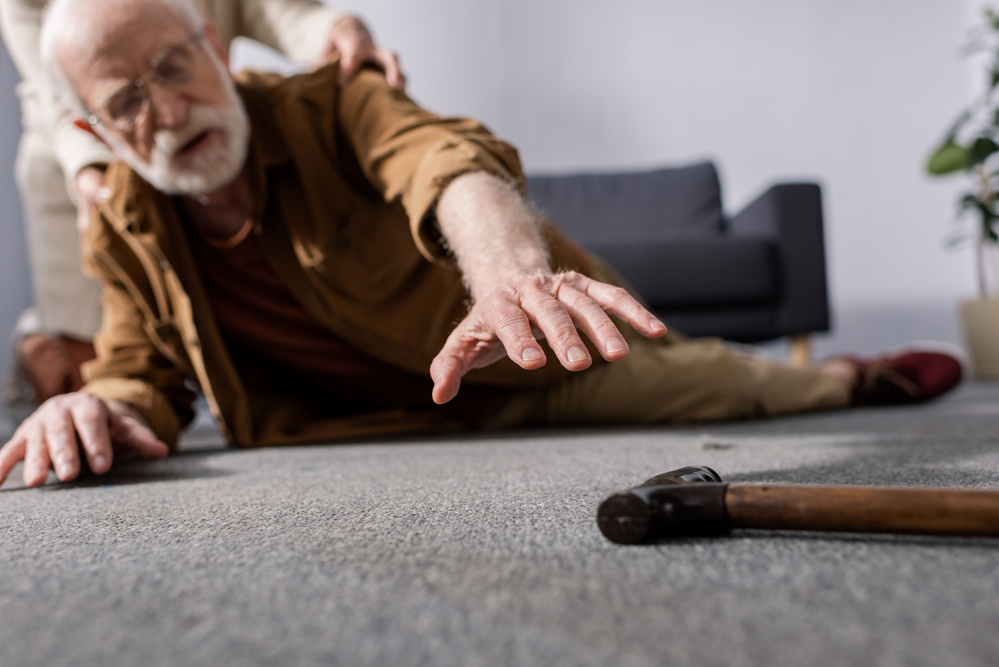 As seniors age, they become more likely to sustain fall-related injuries. Oftentimes, these kinds of injuries are exactly why a senior and their family members will decide that it’s best for the patient to more to a senior care facility or nursing home. Naturally, you likely have some expectation that this type of facility can help to prevent such falls and injuries from occurring. But what happens if your loved one is injured in a fall in a nursing home or other senior care facility? Is the nursing home liable? What rights do you have to pursue a personal injury case in these circumstances? Keep reading to find out more about nursing home falls and how to pursue these kinds of cases.
As seniors age, they become more likely to sustain fall-related injuries. Oftentimes, these kinds of injuries are exactly why a senior and their family members will decide that it’s best for the patient to more to a senior care facility or nursing home. Naturally, you likely have some expectation that this type of facility can help to prevent such falls and injuries from occurring. But what happens if your loved one is injured in a fall in a nursing home or other senior care facility? Is the nursing home liable? What rights do you have to pursue a personal injury case in these circumstances? Keep reading to find out more about nursing home falls and how to pursue these kinds of cases.
Falling Risk Assessment
A skilled nursing facility has a legal obligation to assess each patient’s health and needs when they first become a resident. At this time, they should also create and implement a personalized care plan that can protect the resident’s safety and overall health. Risk of falling is a pivotal part of this intake risk assessment. The facility should consider all factors that could contribute to that resident’s risk of a fall, including:
All of these factors can increase a patient’s risk of falling. If it’s determine that a resident is at high risk of falling, the facility should implement a care plan that includes risk mitigation tactics for falls, which may include:
Performing and documenting this risk assessment is essential for the nursing home to protect itself from liability. If your loved one is injured in a fall, the first thing you should do is ask if they performed an intake assessment, and ask to view the documentation for it. If they did not perform this assessment, then you likely have a viable personal injury case.
Implementation of Care Plan
As we stated above, the initial assessment should include details for a personalized care plan that addresses your loved one’s risk factors for falls. For example, if your loved one struggles with mobility, their care plan would likely include the use of a mobility aid, like a cane or walker. If the staff or facility failed to provide such a device to your loved one (or failed to inform you that one was needed, if the expectation is for families to purchase these devices themselves), then the facility failed to provide care in accordance with the resident’s care plan, and they can be held liable for it.
Using Proper Care Techniques
Staff should be properly trained in adequate care techniques, including supporting residents who may struggle with mobility. This should include such aid as performing patient transfers, such as from wheelchair to bed, or vice versa. If your loved one is injured because proper care techniques were not used, leading to a fall, then you may be able to pursue compensation. If the facility failed to train the employee in proper care techniques, then the facility will likely be the liable party; if the employee was properly trained and simply did not follow through with the techniques, you may be able to pursue compensation from that individual.
Creating a Safe Environment
Above all, senior care facilities and nursing homes should provide a safe, healthy environment for their residents that’s devoid of environmental hazards that might lead to a fall. Hazards can include factors like inadequate lighting, lack of a railing where needed, uneven flooring, wet floors, and any other condition that increases the risk of a fall. If the property is not being maintained and environmental hazards removed, the facility can be held liable for any resulting slip-and-fall injuries.
When Is the Facility Not Liable?
Now that we’ve talked about a lot of conditions under which care facilities would be held liable, it’s important to note that accidents do happen. As already stated, seniors are prone to falls due to declining strength and mobility. If your loved one simply stumbles due to mobility issues, or if they refuse a mobility aid offered to them, and are injured as a result, the facility will likely not be held liable.
If your loved one fell and was injured at a care facility, contact The Harr Law Firm today. We’ll go over the details of your case with you and advise you on whether or not you can hold the facility liable for your loved one’s injuries.